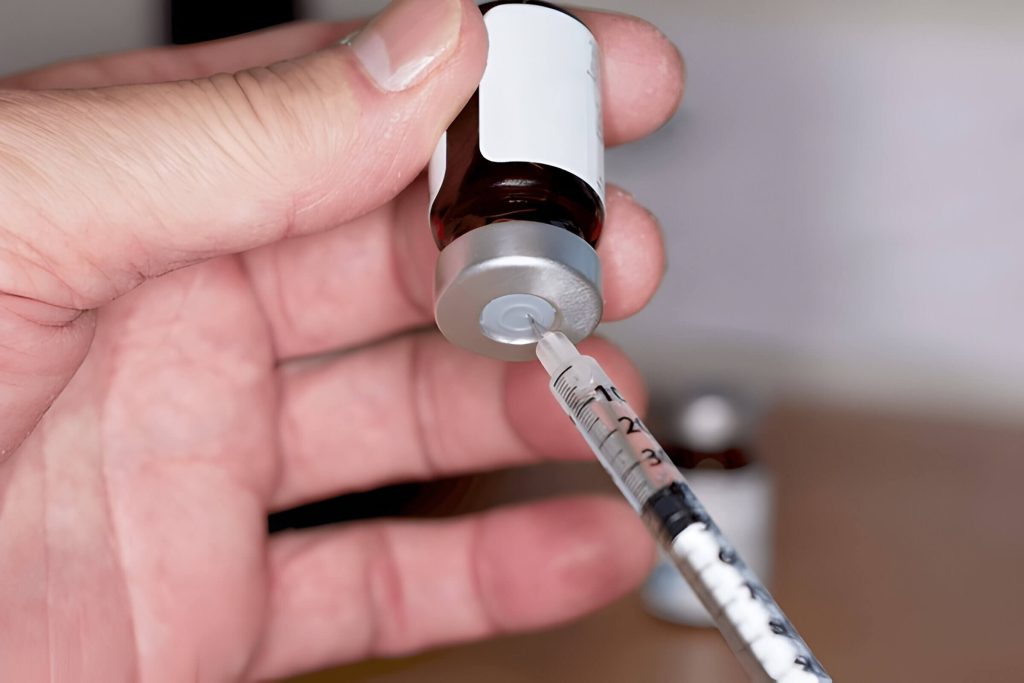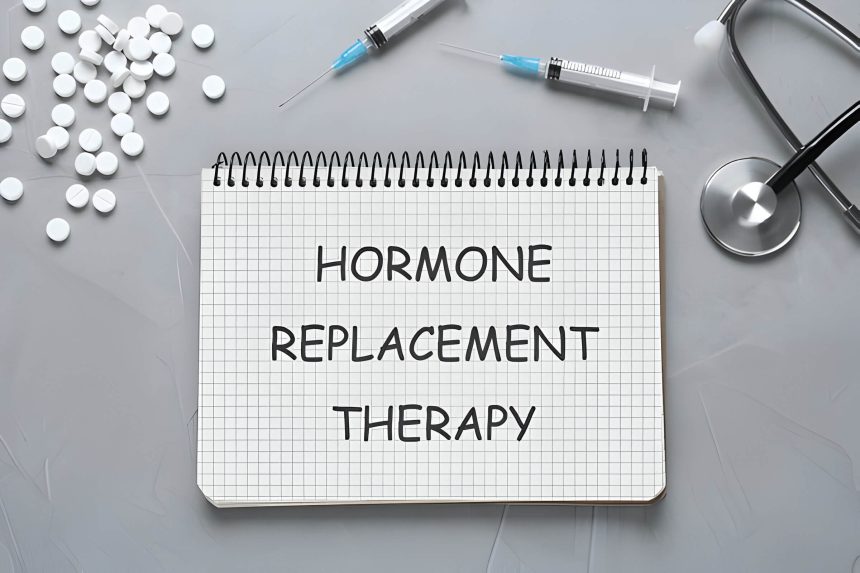Hormone Replacement Therapy (HRT) has long been a subject of discussion regarding its impact on body weight. As many individuals consider stopping HRT, questions arise about potential weight changes. This article delves into the complex relationship between hormone therapy and body weight, exploring how HRT affects metabolism, fat distribution, and overall health. By examining the potential outcomes of discontinuing HRT and offering insights on managing weight during this transition, we aim to provide a comprehensive understanding of this important topic.
The Relationship Between HRT and Weight Gain
Hormone Replacement Therapy (HRT) is a common treatment for menopausal symptoms, but many women express concerns about potential weight gain. While HRT can influence body composition, the relationship between HRT and weight gain is complex and often misunderstood.
Estrogen, one of the primary hormones in HRT, can actually help regulate body weight and fat distribution. It plays a role in metabolism and can help prevent the accumulation of abdominal fat that often occurs during menopause. Progesterone, another hormone used in HRT, may cause some fluid retention, which can be mistaken for weight gain.
Studies have shown that women on HRT tend to gain less weight during menopause compared to those not using HRT (maturitas). However, it’s important to note that weight gain during this period is common regardless of HRT use, often due to factors like aging, decreased activity levels, and changes in metabolism.
While HRT can help alleviate many menopause symptoms, it’s not a magic solution for weight management. A balanced diet, regular exercise, and healthy lifestyle choices remain crucial for maintaining a healthy weight during and after menopause. Women considering HRT should discuss potential benefits and risks with their healthcare provider to make an informed decision based on their individual health needs and concerns.
How HRT Affects Metabolism and Fat Distribution

Hormone Replacement Therapy (HRT) can significantly impact metabolism and fat distribution in the body. As hormones play a crucial role in regulating metabolic processes, introducing exogenous hormones through HRT can lead to noticeable changes in body composition.
One of the primary effects of HRT on metabolism is an increase in metabolic rate. This boost in metabolism can result in more efficient calorie burning, potentially aiding in weight management. Additionally, HRT can help preserve and even increase muscle mass, which further contributes to a higher metabolic rate, as muscle tissue is more metabolically active than fat tissue.
Fat distribution is another area where HRT can have a profound impact. Hormones influence where the body stores fat, and HRT can alter these patterns. For example, estrogen therapy in postmenopausal women tends to promote fat storage in the hips and thighs, while testosterone therapy in men can reduce abdominal fat.
The effects of HRT on metabolism and fat distribution can vary depending on factors such as age, gender, and individual hormonal balance. Regular monitoring and adjustments to HRT regimens are essential to optimize its benefits while minimizing potential risks.
Potential Weight Changes After Stopping HRT
When discontinuing Hormone Replacement Therapy (HRT), individuals may experience various changes in their body composition, including potential weight fluctuations. As the body adjusts to the absence of supplemental hormones, several factors can influence weight:
- Hormonal shifts: The sudden decrease in estrogen and progesterone levels can affect metabolism and fat distribution, potentially leading to weight changes.
- Water retention: Some people may experience a reduction in water retention, which could result in initial weight loss.
- Muscle mass: Hormonal changes can impact muscle mass, potentially affecting overall body weight and composition.
- Metabolism adjustments: The body may need time to recalibrate its metabolic rate, which can temporarily affect weight.
- Appetite changes: Hormonal fluctuations can influence appetite and food cravings, potentially impacting calorie intake and weight.
It’s important to note that weight changes post-HRT vary from person to person. While some individuals may experience weight loss, others might see a slight increase or no significant change at all. Maintaining a balanced diet, regular exercise, and consulting with a healthcare provider can help manage any potential weight fluctuations during this transitional period.
Factors Influencing Weight Loss After HRT Cessation
Several factors play a crucial role in determining weight loss after discontinuing hormone replacement therapy (HRT). Diet is a primary contributor, with a balanced, nutrient-rich eating plan often yielding better results. Regular exercise, including both cardiovascular activities and strength training, can significantly impact weight loss efforts and overall health.
Age is another important factor, as metabolism naturally slows down over time, potentially making weight loss more challenging for older individuals. Genetics also play a part, influencing how the body responds to changes in hormone levels and its ability to shed excess weight.
Lifestyle habits, such as sleep patterns, stress management, and alcohol consumption, can affect weight loss progress. Adequate sleep and stress reduction techniques may support weight loss efforts, while excessive alcohol intake can hinder progress.
Managing Weight During and After HRT
Managing weight during and after hormone replacement therapy (HRT) requires a multifaceted approach. Healthy eating habits play a crucial role in maintaining a stable weight. Focus on a balanced diet rich in fruits, vegetables, lean proteins, and whole grains while limiting processed foods and sugary drinks.
Regular physical activity is equally important. Aim for at least 150 minutes of moderate-intensity exercise or 75 minutes of vigorous-intensity exercise per week. This can include activities like brisk walking, swimming, or cycling, which not only help with weight management but also improve overall health.
Stress management techniques, such as meditation, yoga, or deep breathing exercises, can help reduce cortisol levels, which may contribute to weight gain. Additionally, prioritizing sleep quality is essential, as poor sleep can disrupt hormones that regulate appetite and metabolism.
Other Health Considerations When Stopping HRT
When considering stopping hormone replacement therapy (HRT), it’s crucial to be aware of various health implications beyond the immediate symptoms of menopause. Bone density is a primary concern, as estrogen plays a vital role in maintaining bone strength. Without HRT, some women may experience an increased risk of osteoporosis and fractures. Regular bone density scans and calcium supplementation may be necessary to monitor and maintain skeletal health.
Cardiovascular health is another important factor to consider. Estrogen has protective effects on the heart and blood vessels, and discontinuing HRT may lead to an increased risk of heart disease in some women. It’s essential to discuss cardiovascular risk factors with a healthcare provider and potentially implement lifestyle changes or alternative treatments to support heart health.
Mood changes are common when stopping HRT, as hormones play a significant role in regulating emotions and mental well-being. Some women may experience increased anxiety, depression, or irritability. Monitoring these changes and seeking support from mental health professionals if needed is crucial.
Hot flashes, a hallmark symptom of menopause, may return or intensify when discontinuing HRT. While not dangerous, they can significantly impact quality of life. Exploring alternative treatments such as herbal remedies, acupuncture, or lifestyle modifications may help manage these symptoms effectively.
Consulting with Healthcare Professionals

Consulting with healthcare professionals is crucial when addressing hormonal imbalances or considering hormone replacement therapy. These experts can provide personalized medical advice based on your specific health needs and concerns. They will typically begin by conducting a thorough evaluation, which may include hormone level testing to accurately assess your current hormonal state.
Healthcare professionals can then develop personalized treatment plans tailored to your individual requirements. These plans may involve lifestyle modifications, dietary changes, or hormone replacement therapy, depending on your specific situation. Regular consultations allow for monitoring health changes over time, ensuring that your treatment remains effective and appropriate.
It’s important to maintain open communication with your healthcare provider, discussing any side effects or concerns that may arise during treatment. This collaborative approach ensures that you receive the most appropriate care and can make informed decisions about your health. Remember, while general information is helpful, it’s no substitute for personalized medical advice from a qualified professional.
Balancing Health and Weight Management Post-HRT
As we conclude our discussion on health and weight management after hormone replacement therapy (HRT), it’s essential to recognize that this journey is unique for each individual. The changes your body undergoes during and after HRT can be significant, but with the right approach, maintaining your health and managing your weight is entirely achievable.
Remember that a holistic approach is key. This includes not only focusing on diet and exercise but also considering factors such as stress management, sleep quality, and regular health check-ups. It’s crucial to work closely with your healthcare provider to monitor your progress and make necessary adjustments to your treatment plan.
While weight gain can be a concern for many individuals post-HRT, it’s important to prioritize overall health rather than fixating solely on the number on the scale. Focus on nourishing your body with a balanced diet, engaging in regular physical activity that you enjoy, and practicing self-care.
Lastly, be patient with yourself. Your body has undergone significant changes, and it may take time to find what works best for you. Stay consistent with your efforts, celebrate small victories, and don’t hesitate to seek support when needed. With persistence and the right guidance, you can successfully navigate this new phase of your life while maintaining optimal health and well-being.
